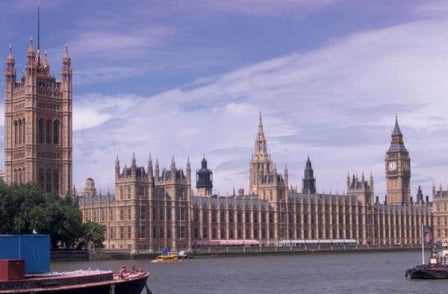
A new law to curb police spying on journalists' phone records looks set to come into force next week.
The Save Our Sources law-change follows a six-month campaign by Press Gazette.
It means that for the first time police forces using the Regulation of Investigatory Powers Act to seize journalists’ phone records will have to seek the approval of a judge.
The judge will be required to weigh the public interest in making the data available against the powerful legal precedents protecting journalistic sources under Article 10 of the European Convention.
The House of Lords is to vote on Monday on approving a statutory instrument which means police will have to seek the approval of a judge if they wish to view the phone records of journalists. As this statutory instrument has already been okayed by the Commons this week, Lords approval is understood to be formality.
The law requires police seeking journalists' call records to use the judicial procedure set out in the Police and Criminal Evidence Act. But whereas PACE requests for notebooks and other material go to journalists themselves, requests for phone records will go confidentially to the telecoms providers.
Yesterday, Press Gazette met Government officials to make the case for prior-notification so that news organisations can make the case against to judges for protecting their sources.
But it was made clear the new ‘stop gap’ changes to the Regulation of Investigatory Powers Act are the best the Government can do at this late stage in the Parliament.
The new statutory instrument is expected to come into effect immediately after it is approved by the Lords.
New legislation to provide long-term reform of RIPA has been promised early in the next Parliament and most be passed whatever the outcome of the general election because of a time limit on current provisions.
Press Gazette was invited by Lib Dem Peer Lord Marks to voice the media industry’s ongoing concerns about RIPA to Home Office Minister Lord Marks. Associate director of Hacked Off Evan Harris, who has been campaigning for reform of RIPA, also attended the meeting.
Harris expressed concerns that the new RIPA code approved in the statutory instrument continues to state that communications data (as distinct from the content of communications) is not privileged.
Most news organisations strongly disagree with this point, as do lawyers and doctors’ groups.
He and Press Gazette both made the point that the law does not go far enough because of the lack of prior notification for journalists and news organisations.
Press Gazette warned that it will be impossible for judges to properly weigh the public interest in protecting the anonymity of a journalistic source if they only hear the police side of the argument.
The Government’s position is that it has never been the policy in this country to notify the subjects of RIPA telecoms records requests. This is to avoid the risk of ‘tipping off’ those who are under inquiry.
The law-change carries out a recommendation in last month’s Interception Commissioner’s report which found that police forces have used RIPA to grab 82 journalists’ call records over the last three years in order to identify their sources.
The Commissioner’s report was prompted by media concern, voiced in the Press Gazette Save Our Sources Campaign, following the revelation last September that the Met Police had secretly viewed the phone records of The Sun.
Email pged@pressgazette.co.uk to point out mistakes, provide story tips or send in a letter for publication on our "Letters Page" blog
